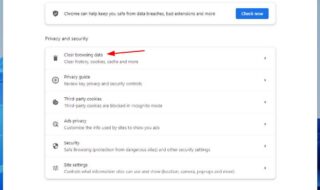In the digital space, creating compelling content isn’t enough. If you want your content to reach a wider audience, integrating Search Engine Optimization (SEO) into your content strategy is necessary. SEO helps improve your website’s visibility on search engines, driving organic traffic and enhancing your online presence.

Contents
- Understanding the Basics of SEO
- On-Page SEO: Optimizing Content
- Link Building: Building Authority
- Measuring and Adapting Your Strategy
- Keyword Research: The Foundation of SEO
- Creating High-Quality, Original Content
- Technical SEO: Enhancing Site Performance
- The Role of Social Media in SEO
- Local SEO: Targeting Nearby Audiences
- Voice Search Optimization
- Conclusion
Understanding the Basics of SEO
Before diving into integration, it’s important to grasp the basic concepts of SEO. SEO revolves around optimizing your content so that it appears higher in search engine results. This involves keyword research, on-page optimization, and understanding how search engines rank content. The aim is to make your content both user-friendly and search engine-friendly.
On-Page SEO: Optimizing Content
On-page SEO refers to the practice of optimizing individual web pages. This includes using header tags (H1, H2, etc.), meta descriptions, and alt text for images. Properly using header tags helps search engines understand the structure of your content. Meta descriptions, while not directly influencing rankings, can improve click-through rates if they compellingly summarize the content.
For those looking to further enhance their SEO strategy, seeking the best SEO services can be a valuable step. Professional services can assist in fine-tuning various aspects of SEO, ensuring that your content achieves maximum impact.
Link Building: Building Authority
Link building is another important aspect of SEO. This involves getting other reputable websites to link back to your content. High-quality backlinks act as endorsements, telling search engines that your content is credible and valuable. Focus on earning links from authoritative sites within your niche.
Measuring and Adapting Your Strategy
SEO is not a set-and-forget strategy. Use tools like Google Analytics and Search Console to monitor your SEO performance. Analyzing metrics such as organic traffic, bounce rates, and keyword rankings can provide insights into what’s working and what isn’t. Based on this data, adapt your content and strategies to continuously improve your SEO efforts.
Keyword Research: The Foundation of SEO
Keywords are the phrases and words that users type into search engines. Identifying relevant keywords for your content is foundational for SEO. Tools like keyword planners can assist in discovering effective keywords with high search volume and low competition. Incorporate these keywords naturally into your content without overstuffing, which can harm readability.
Creating High-Quality, Original Content
Search engines favor original, high-quality content that provides value to readers. While integrating keywords is important, the content should be informative, engaging, and unique. Aim to answer potential questions your audience might have and offer insights that can’t be easily found elsewhere.
Technical SEO: Enhancing Site Performance
Technical SEO focuses on the performance aspects of your website, such as load speeds, mobile-friendliness, and secure connections (HTTPS). A faster, adaptable, and secure website provides a better user experience, which search engines recognize and reward. Regularly audit your site to fix errors like broken links and duplicate content.
The Role of Social Media in SEO
Social media can be a powerful tool in your SEO strategy. Sharing your content across social platforms can increase visibility and drive traffic to your website. Moreover, social signals such as likes, shares, and comments can indirectly influence search rankings by increasing the perceived relevance and popularity of your content. Engage actively with your audience on social media to build relationships and encourage them to share your content.
Local SEO: Targeting Nearby Audiences
For businesses serving specific geographic areas, local SEO is vital. This involves optimizing your content for local search queries and ensuring your business appears in local search results. Claim your business listings on Google My Business, and ensure your name, address, and phone number (NAP) are consistent across the web. Gathering positive reviews and earning local backlinks can also boost your local search presence.
Voice Search Optimization
With the increasing popularity of voice-activated search assistants like Siri and Alexa, optimizing for voice search is becoming more important. Voice searches are typically longer and conversational. To capture this traffic, consider incorporating natural language and question-based keywords into your content. Creating FAQ sections on your website can help address common voice search queries, enhancing your chances of appearing in voice search results.
Conclusion
Integrating SEO into your content strategy is a multifaceted process that requires careful planning, execution, and ongoing adjustment. By understanding keywords, creating high-quality content, optimizing on-page elements, focusing on technical SEO, building authoritative links, and consistently measuring performance, you can enhance your website’s visibility and drive more organic traffic. Remember, SEO is a long-term commitment but one that pays off with sustained, high-quality traffic and increased online presence.



